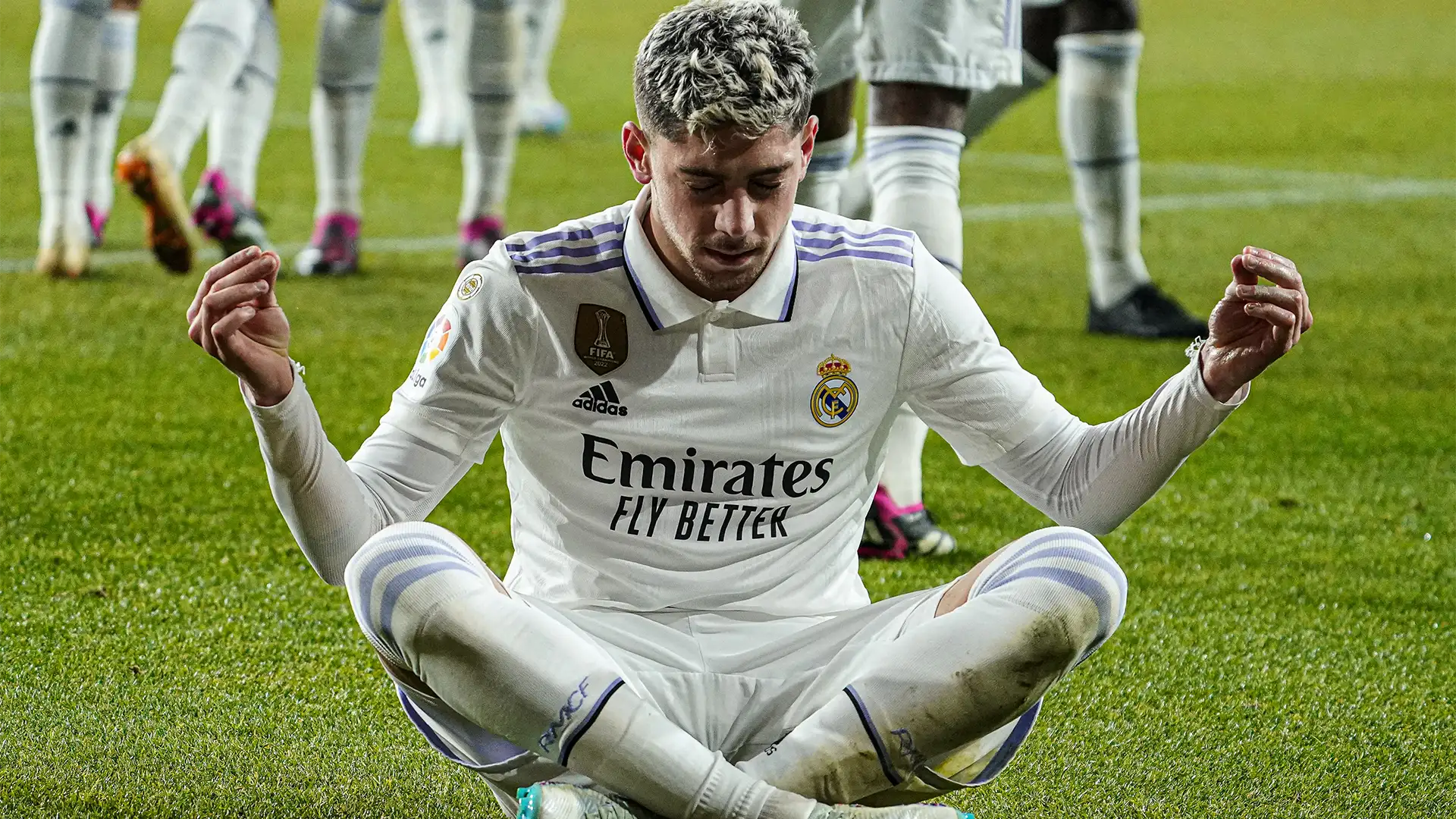Published
2 months agoon
By
Joe Pee
In the world of football, few stories capture the imagination quite like that of Fede Valverde. The Uruguayan midfielder, once a quiet presence among Real Madrid’s galaxy of stars, has evolved into one of the club’s most indispensable players. This is the tale of how Valverde went from a versatile team player to a leader on the pitch, commanding respect from both his teammates and fans alike.
Real Madrid’s recent match against Villarreal demonstrated just how vital Valverde has become under Carlo Ancelotti. With injuries decimating the squad, Ancelotti has had to get creative, and Valverde has been at the heart of those adjustments. In the Villarreal game, Valverde was deployed in a more advanced role, and the result was a goal and an assist—proof of his growing influence in the final third.
Ancelotti’s decision to free Valverde from his defensive duties and push him further up the pitch paid immediate dividends. As the Real Madrid boss noted, Valverde’s ability to strike the ball from distance is a valuable asset. His technical skills, combined with his work rate, make him a formidable presence on both sides of the ball.
What makes Valverde truly unique, however, is his versatility. The 25-year-old can seamlessly shift between multiple positions—whether it’s in midfield, as a winger, or even at right-back when needed. He may not have the playmaking finesse of Luka Modrić or the pinpoint passing of Toni Kroos, but Valverde can hold his own in any role. His adaptability is a manager’s dream, especially during an injury crisis.
Valverde’s role as a utility player initially saw him filling gaps wherever Real Madrid needed him most, often on short notice. But his importance has grown well beyond being just a “plug-and-play” option. His ability to contribute both defensively and offensively has earned him recognition as a complete player, a rare breed in modern football.
To understand how Valverde reached this level, we need to go back to his early days in Uruguay. At just 10 years old, Valverde was spotted by Néstor Gonçalves, a legendary Uruguayan player, who immediately saw potential in the young boy playing for Peñarol. While Valverde initially hated running and complained about his defensive duties, his youth coach, Sho Perdomo, transformed him into a well-rounded midfielder.
By the time Valverde was 15, he was already training with Peñarol’s first team, and at 16, Real Madrid came calling. Valverde’s rise was not without its setbacks, as he was often overlooked for national youth teams due to his small stature. But through perseverance and sheer talent, Valverde broke into Uruguay’s national setup and eventually earned a move to Real Madrid.
After joining Real Madrid’s Castilla side in 2016 and spending a season on loan at Deportivo La Coruña, Valverde made his first-team breakthrough in the 2018-19 season under Zinedine Zidane. Zidane trusted Valverde to step into various midfield roles, and by the time Ancelotti took over, Valverde was already a key piece in Real Madrid’s puzzle.
From defensive midfield to right-wing, Valverde has played nearly every position in the lineup, even filling in as a right-back during crucial matches like the Champions League tie against Liverpool. His adaptability has made him an essential part of Real Madrid’s success, contributing to La Liga and Champions League triumphs in the 2021-22 season.
In the 2022-23 season, Valverde added another layer to his already versatile skill set—goalscoring. After previously being known more for his work rate and tactical intelligence, Valverde began scoring stunning goals from distance, including vital strikes against Atlético Madrid and FC Barcelona. His ability to hit the ball with power and precision has made him an unexpected threat from outside the box.
Despite a drop in goals during the latter half of the 2022-23 season, Valverde’s contributions remain invaluable. Whether he’s scoring, assisting, or covering every blade of grass, he is consistently one of Real Madrid’s standout performers.
At just 25 years old, Valverde has already become a leader at Real Madrid and Uruguay. Recently appointed as Uruguay’s captain under Marcelo Bielsa, Valverde has shown maturity beyond his years. At Real Madrid, he’s one of the club’s four captains, behind only Modrić, Dani Carvajal, and Lucas Vázquez.
His leadership extends beyond his work ethic on the pitch—Valverde’s attitude and commitment to the team have made him a role model for younger players. He is no longer just a utility player; Valverde is now a player who can lead, inspire, and carry Real Madrid forward, even in challenging times.
As Real Madrid continues to navigate through injuries and changes in the squad, Valverde will likely be asked to cover various positions. Yet, his influence on the team will remain undiminished. Whether he’s defending, scoring, or leading his teammates, Fede Valverde has proven that he is more than just a versatile option—he is Real Madrid’s most important player.
As Ancelotti continues to fine-tune his tactics, one thing is certain: Valverde’s shocking rise to stardom is no longer a surprise. He is a complete footballer, a leader, and an essential part of Real Madrid’s present and future.

























